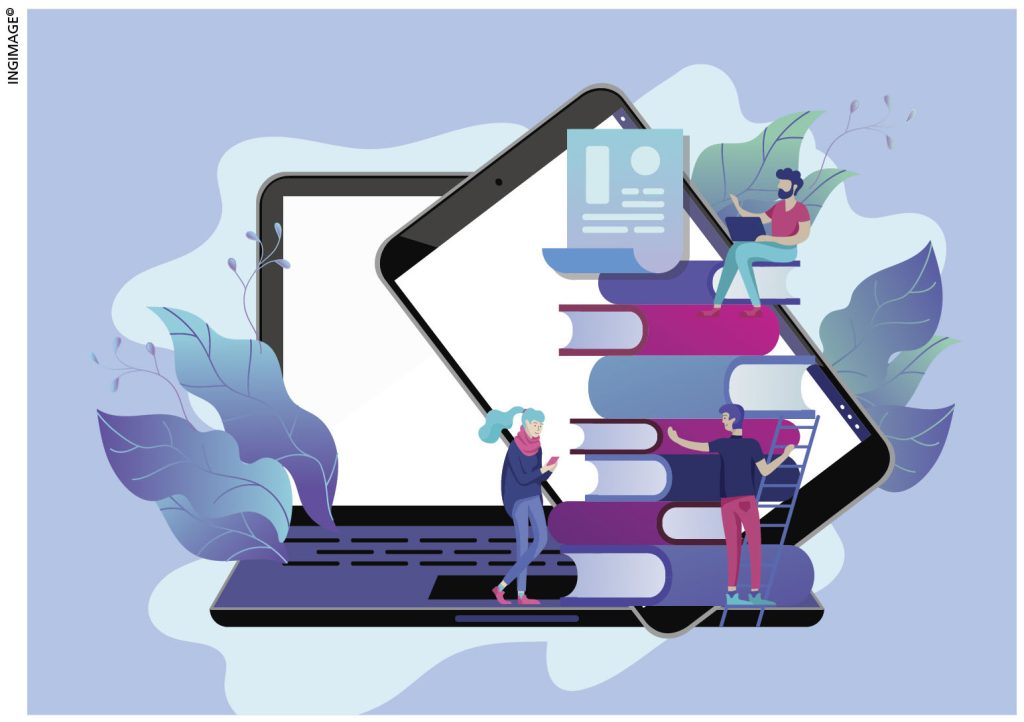DIGITAL CITIZENSHIP
IS THE WORLD YOUR OYSTER?
Ruwandi Perera uncovers the skills for living in today’s digital world

Are you a good digital citizen? And are you equipped with the skills, knowledge and conduct that’s needed to serve as an engaging digital citizen?
And if you think you don’t have citizenship in the digital space, think again…
According to the Department of Census and Statistics, Sri Lanka’s digital literacy was 63.5 percent in 2023 – this percentage is based on citizens between five to 69 years old. To be considered digitally literate, they have to be able to use a computer, laptop, tablet or smartphone independently.
It’s not much of a standard… but at least we have one.
AI, machine learning, cloud computing and the whole range of digital technologies have made our lives easier. We can lift a finger (or fingers) and accomplish anything from ordering eggs to emailing a fully fledged project proposal to a client without spending more than five minutes on it.
But in reality, has it become that simple? Or are we being pushed to navigate complications and complexities, from wondering whether the candidate who applied online for the vacancy in the office is a human being to worrying about how you’re suddenly receiving emails about retirement homes from an unknown company… only because you discussed life after 60 with a friend, the day before?
Worse still, are we scratching our heads about whether a kangaroo is allowed on an aircraft because that’s what was shown on the viral video that touched hearts and mocked brains some months ago?
Being a digital citizen is not that simple – and technology alone (even the best out there) isn’t going to cut it.
There are basic skills that we humans need to develop in order to become digital citizens – and stop ourselves from becoming slaves to digital technology.
One of the fundamental skills needed is internet navigation. Do you know how to source information online; what to type in; what questions to ask and how to ask them; and how to ask Siri or Alexa to do something for you?
Language plays a major role in this complex equation. And while countries are increasingly translating the user language of many apps into local lingo, linguistic literacy is a necessity for us to navigate cyberspace effectively.
Knowing your prompts and what to ask are important too. Unlike humans who can read between the lines, study your body language or know you well enough to understand what you’re saying and not saying, search engines, chatbots, generative AI platforms and digital assistants need more clarity and context to provide answers.
If you ask the wrong question, you won’t get the right answer.
Another skill is online communication, meaning that you need to know how to use it. With human interaction on the decline and online engagement taking centre stage, we might not want to rely too heavily on our charm and charisma to get a job done.
The most important and perhaps the toughest skill we need in the digital world is critical thinking. It’s not that we didn’t need it when we lived in a fully physical world but it isn’t a given that everyone had it.
We’d jump to conclusions when we heard a juicy rumour about someone without double-checking the source or facts. And we’d fall into traps laid by unethical salespeople who would lure us with promises that seemed too good to be true.
So all in all, we weren’t great at critical thinking even before the digital era came around. And now with deepfakes, phishing, whaling, baiting, honeytraps, scareware and all kinds of digital manipulation tools at people’s disposal, it’s becoming harder to be critical.
Our brains are constantly tested. Was that kangaroo actually holding its own boarding pass? Is that person really performing those magic tricks on America’s Got Talent?
We are reaching the point where we’ll have to assume that every video is fake unless proven otherwise – because if we don’t, we will go through life believing lies; and we won’t be able to distinguish reality from fiction.
It’s a tough digital environment out there if we aren’t equipped with these basic skills. And when we’re truly equipped, the world is going to be our digital oyster!





